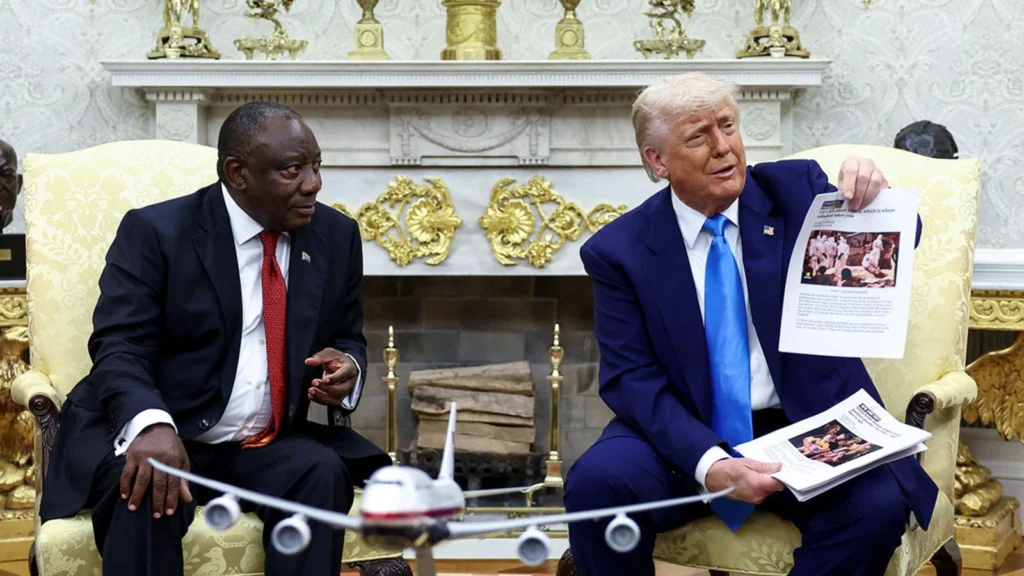South Africans Divided on Cyril Ramaphosa’s Confrontation with Donald Trump
In an unexpected and dramatic meeting in the Oval Office, former U.S. President Donald Trump has stirred tensions by confronting South African President Cyril Ramaphosa regarding issues affecting the country’s white farming community. The meeting has revealed a deep divide among South Africans, particularly in how they perceive both leaders and the implications of their dialogue.
During the encounter, Trump highlighted the grievances of right-wing Afrikaner groups, which have characterized their situation as one of persecution. The Solidarity Movement, an organization advocating for Afrikaner rights, celebrated Trump’s stance, considering it a significant moment that brought attention to the struggles faced by the Afrikaner community in South Africa.
Reactions from Afrikaner Groups
Ernst Roets, a prominent figure within Afrikaner circles, praised Trump for showcasing the challenges posed by political figures like Julius Malema, leader of the Economic Freedom Fighters (EFF), infamous for his controversial song “Shoot the Boer.” Roets expressed admiration for the American president’s approach, even suggesting that he deserved a Nobel Prize for addressing what they deem the “farm murder crisis.”
However, critics of right-wing activism in South Africa have argued that such lobbying presents a lack of patriotism and international trust. Many South Africans point out that the nation operates under a government of national unity, tackling pressing issues including high unemployment, especially among black citizens, and pervasive crime rates.
| Issue | Concern |
|---|---|
| High Crime Rate | Affects all racial groups, calls for better policing |
| Unemployment | Particularly high among black South Africans |
| Political Extremism | Continued tensions between right-wing groups and leftist movements |
Ramaphosa’s Composed Response
Throughout the meeting, President Ramaphosa maintained his composure, emphasizing that South Africa is a democratic nation where even controversial views, such as those expressed by Malema, are protected. He reiterated the necessity of unity in addressing the country’s multifaceted challenges instead of falling prey to division.
John Steenhuisen, the leader of the Democratic Alliance, echoed Ramaphosa’s sentiments by acknowledging the safety concerns while refuting the narrative that white farmers were predominantly leaving the country. He pointed out that the majority of agricultural stakeholders are committed to remaining in South Africa and contributing to its future.
Mixed Public Sentiment
Despite commendations for Ramaphosa’s handling of the situation, many South Africans viewed the confrontation as uncomfortable. They expressed frustration at how right-wing factions appear to seek external interventions rather than engaging constructively within South Africa.
Trade union leader Zingiswa Losi remarked on the pervasive violence affecting marginalized communities, reminding all present that crime is a significant issue transcending race. This view resonates with many South Africans, who desire to see a focus on criminality rather than attempts to frame issues through a racial lens.
As the dust settles from this politically charged encounter, one thing is clear: South Africa’s socio-political landscape remains deeply polarized, with both historical grievances and contemporary challenges requiring urgent, unified solutions.


